Cardinal Pierbattista Pizzaballa is a worthy papal contender, but is he too young?
As the cardinals prepare for the conclave to elect a successor to Pope Francis, Pierbattista Pizzaballa has emerged as a contender who has long straddled the tensions of the Middle East.
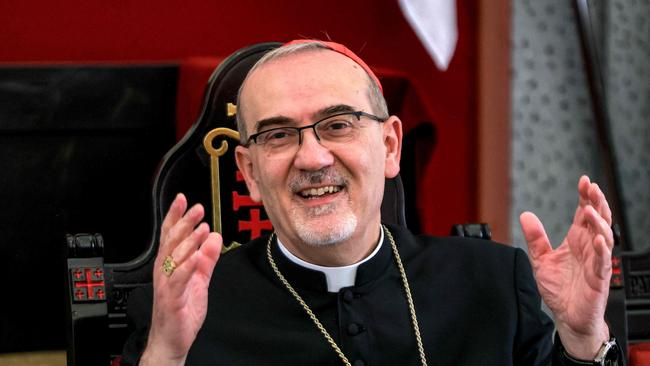
There is a push for the papacy to return to Rome after what has been nearly a half-century of non-Italian pontiffs, but it may not be the frontrunner, Vatican secretary of state Cardinal Pietro Parolin, 70, who emerges as the next leader of the Catholic Church but a keffiyeh-wearing Arab speaker.
The much younger Italian cardinal from Bergamo, Pierbattista Pizzaballa, 60, who has made the Holy Land his home for more than three decades, is a highly qualified papabile, or papal contender, to replace Pope Francis.
If we look at Pizzaballa’s career, it’s impressive indeed. On the plus side he speaks several languages, including Hebrew and Arabic as well as English and Italian. He is a true Franciscan and has been at the centre of Christian-Muslim tensions for 35 years in Jerusalem, Bethlehem and Nazareth.
For the past nine years he has been the apostolic administrator of Jerusalem and single-handedly has reinvigorated the Latin patriarchate’s finances, which had been severely tested during the building of a multimillion-dollar Catholic university in Jordan. Then five years ago Pope Francis made Pizzaballa the Latin Patriarch of Jerusalem, and in 2023 he was created a cardinal – the first with his seat in Israel.
When he was told on early Easter Monday morning that Pope Francis had suddenly died – the same day that Pizzaballa was celebrating his 60th birthday – he prepared to head for Rome.
But first he greeted Australian Cardinal Mykola Bychok, of Sts Peter and Paul in Melbourne, who just arrived. Bychok had heard the news about the pontiff while on a flight from Melbourne to Israel and the two cardinals prayed in a mass two days later in the Church the Holy Sepulchre alongside Franciscans, bishops and priests.
Then, when Pizzaballa was departing from the Latin Patriarchate of Jerusalem offices, staff gathered and sang farewell, indicating that in their view their boss might not be returning.
They sang in Arabic, a language Pizzaballa has studied at length, understanding well the message they were imparting: “May the Lord guide your steps with his wisdom, fill your heart with his spirit, and be with you if it’s his prayer that you should lead his church.”
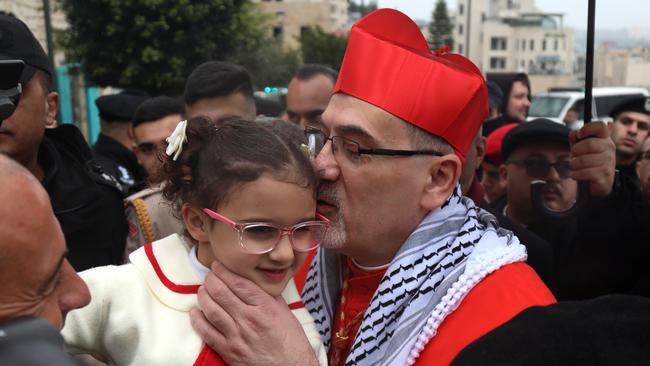
Pizzaballa and his Middle East expertise came to the world’s attention after the atrocity in Israel on October 7, 2023.
He immediately stood up and offered himself as a hostage in exchange for the release of all children who had been captured by Hamas, amid calls for a de-escalation and mediation.
Pizzaballa told reporters soon after the Hamas attacks that he was willing to do anything to bring home the children, and that returning the hostages was absolutely necessary to stopping the violence.
He also was concerned for about 1000 Christians in Gaza who had sought shelter in church buildings. At the time he called on all his contacts, Jews and Muslims, to provide medicine, water and generators and worked to create a humanitarian corridor for such basic necessities.
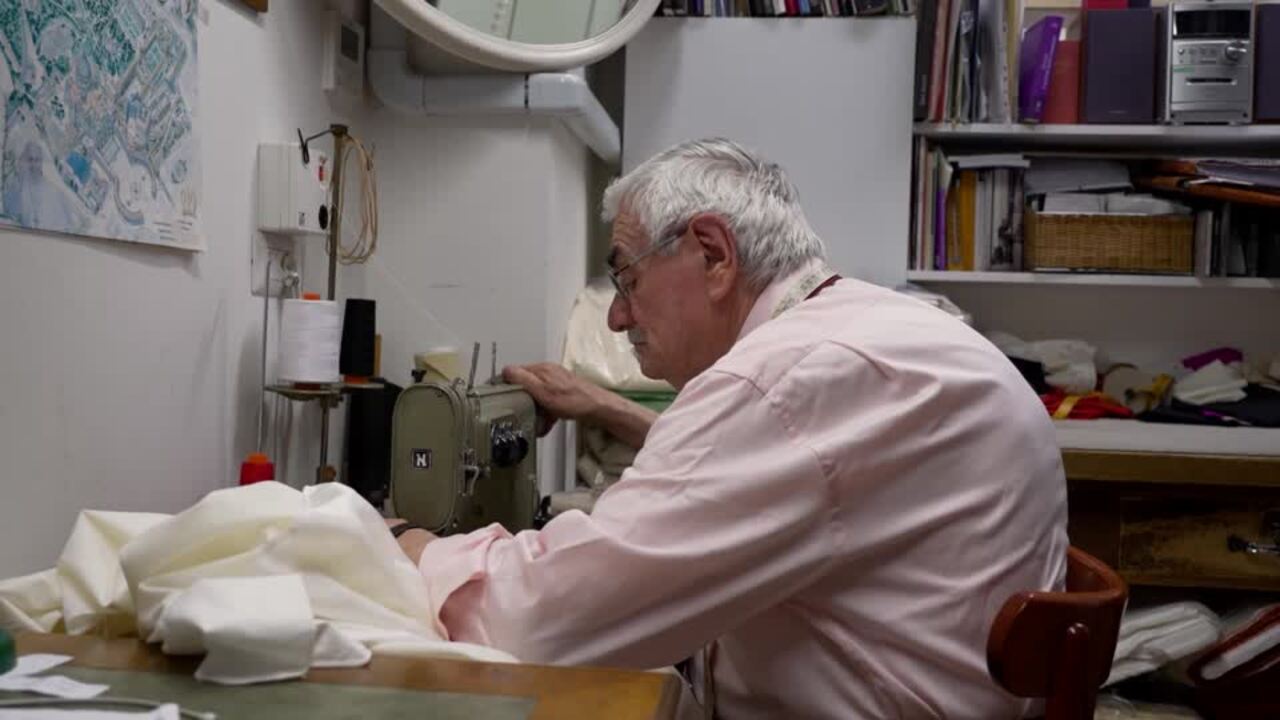
Within the Vatican, Pizzaballa’s diplomacy and plain speaking were not a surprise. Back in 2014 he had organised the Pope’s prayer for peace in the Vatican Gardens with Francis sitting between Shimon Peres, the Israeli president at the time, and Palestinian leader Mahmoud Abbas. It was a first for the Vatican to host leaders involved in an active conflict.
Pizzaballa has long straddled the tensions of the region and is highly respected by officials not only in Israel but also in the Palestinian territories, Jordan and Egypt.
Publicly Pizzaballa was mute about Israel’s sudden retraction of condolences regarding Pope Francis, believed to be because of Prime Minister Benjamin Netanyahu’s anger at the late pope’s strong views about Gaza. But sources say behind the scenes Pizzaballa was a key figure behind Netanyahu’s office eventually issuing a social media message four days later expressing sorrow.
The journalists’ and researchers’ College of Cardinals Report says “little is known about Pizzaballa’s theology or doctrinal positions because he rarely addresses controversial issues”.
“From what we do know of his words and actions, it is possible to discern a desire to abide by the orthodox traditions and practices of the church while also remaining open to modernity,” the report says.
“He strongly believes in the centrality of Christ in the Eucharist, has a fervent Marian devotion and is a great believer in the path of sanctification through tribulation in that great crucible of suffering that is the Middle East.”
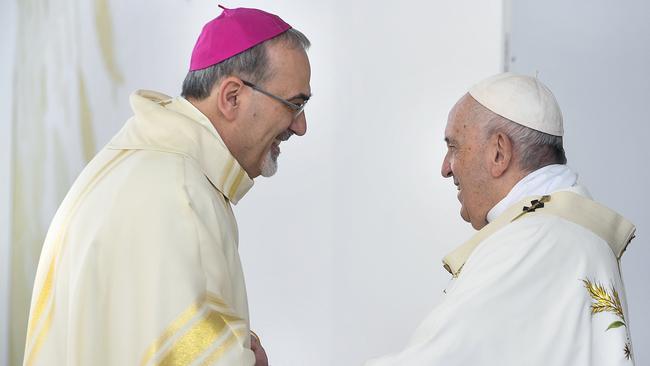
It adds: “His long experience of the Holy Land means he is able to engage both sides in this seemingly intractable conflict. Unafraid to speak out, he has striven to treat Arabs and Israelis with equanimity, but with arguably more sympathy for the Palestinian people whom he sees as ‘still waiting for their rights, their dignity or recognition’.”
Pizzaballa, a tall man who often stands out with a keffiyeh draped around his red cardinal robes, reflects how this period of history is one of “great disorientation and confusion” and he is concerned about migrants and social justice issues.
Liturgically he favours tradition, with the Eucharist at the heart. He also has spoken about finding a balance between a supportive and encouraging approach to modernise the church while remaining faithful to the scriptures and tradition.
After Francis’s death Pizzaballa said: “The new pope cannot be a soloist. Peace must become the beacon.” He added: “I will bring my voice from the Middle East. The church is like the world out there right now and there is a need for unity.’’
Pizzaballa led the fifth evening rosary in memory of Pope Francis at Santa Maria Maggiore on the eve of the funeral and drew a parallel between the disciples withdrawing into themselves in the days after the resurrection to distract themselves from what they experienced.
“We too, when faced with such a mystery, are tempted to be overwhelmed, and we struggle to place our trust in God,” he said, adding: “With the death of our beloved Holy Father Francis, we too experience the difficulty of believing.” He asked the Blessed Virgin Mary, Salus Populi Romani, to lift hearts and transform the hour of sorrow into a dawn of hope.
In an interview given to Israel’s YNet shortly after he was created cardinal, Pizzaballa said he had devoted himself to God at an early age. His mother, Maria, said he had wanted to join the church when he was nine.
“It came from my childhood,” Pizzaballa said. “I come from a small village, lots of farms, in northern Italy. Being religious was natural for me. The clergymen in my village were very charismatic and I wanted to be like them.”
His father, Pietro, and Maria encouraged him to wait a bit, but by the age of 19 he had entered the Order of the Minor Friars of Ferrara and then five years later he was ordained a priest in Bologna, studying philosophy and theology.
By 1990 he was in Jerusalem, studying modern Hebrew and Semitic languages, and he has stayed there since.
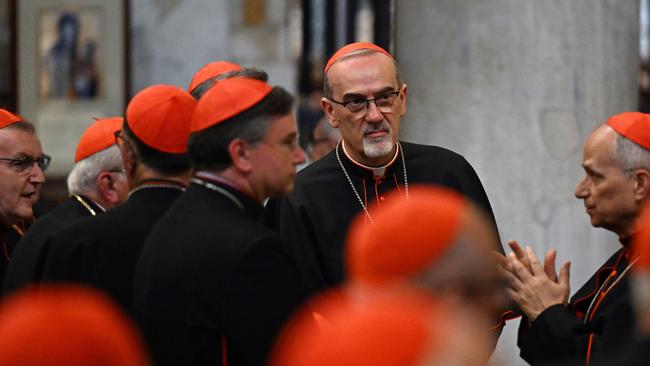
“Ninety-nine per cent of society here accepts me as a Christian,” he once said. “There are always extremists here and there, some people understand more, some less, different sensitivities, it’s natural.
“The relations between Judaism and Christianity, especially Catholicism, are complex relations, also because of our history. We must be aware of that. But we must not fear.
“The church in this land is part of Israeli society. The country is a country with a variety of colours, and we are part of it. Don’t think that we are just outsiders.”
To most Italians, the name Pizzaballa is well known but for a different reason. Pizzaballa’s father’s cousin Pier Luigi Pizzaballa was a goalkeeper in the Serie A competition in the mid-1960s and early 70s. Famously, the footballer once missed a photo session because of an injury, meaning his sticker was then omitted from a much sought-after football card set.
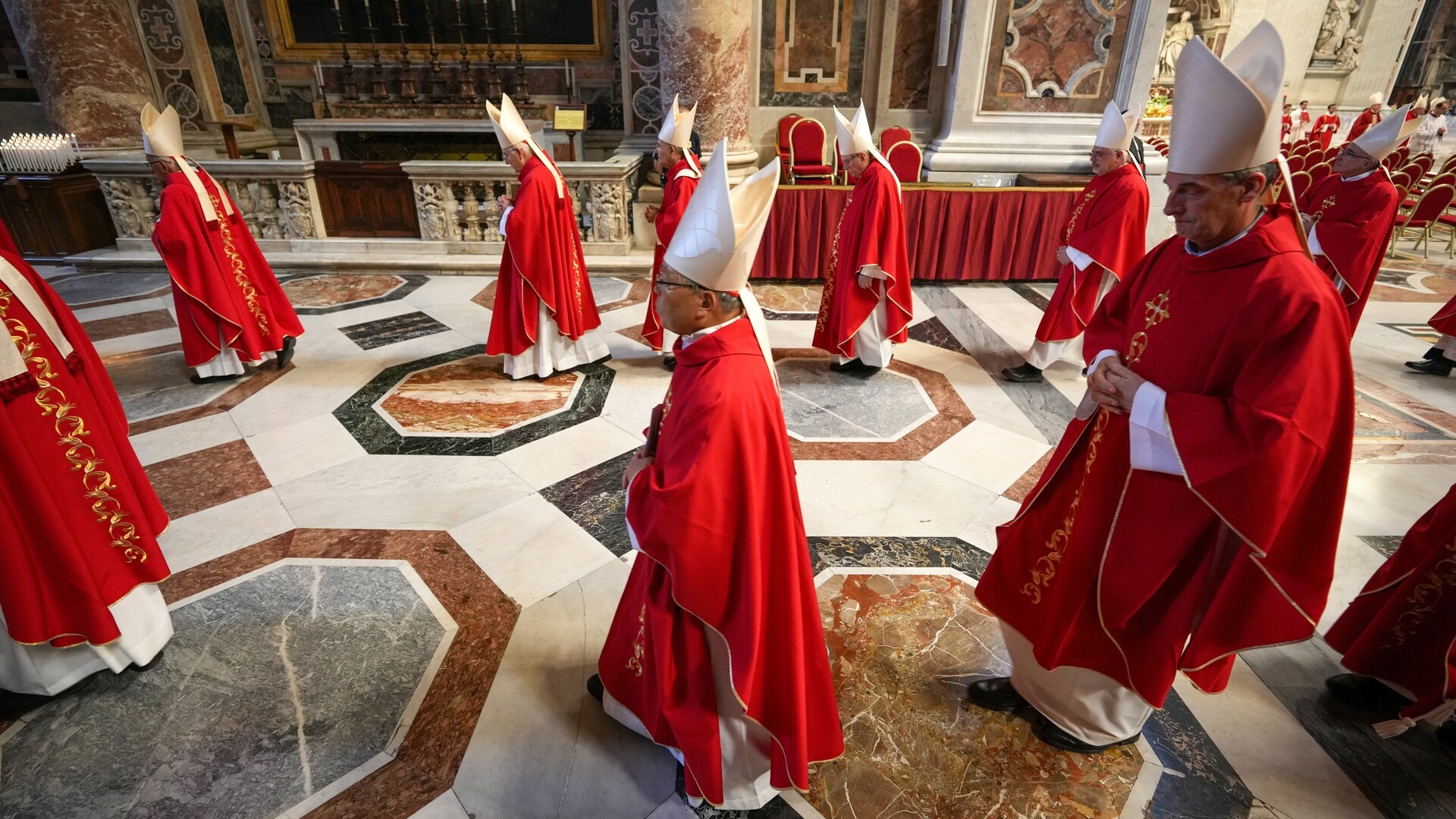
A generation of Italians – including the cardinal – still seeks the few stickers of Pizzaballa that belatedly were put out by the promotions company.
“Pier Luigi Pizzaballa is my father’s cousin and I too, like everyone else, collected stickers and I have never found Pizzaballa,” the cardinal said.
Pier Luigi, now 85, says he is willing to donate his own card to Pizzaballa if he becomes pope.
In the next week the cardinals will be meeting daily, getting to know the key candidates, working out the priorities for the future direction of the Catholic Church and who the best leader may be.
If there is one drawback to Pizzaballa’s candidacy it is his age. Some cardinals are wary of installing a pope who may be in place for 30 years.
Of the 135 voting cardinals, only 15 are under the age of 60 and most of the contenders are a decade or more older: Parolin is 70, Hungary’s Peter Erdo is 72, The Philippines’ Luis Antonio Tagle is 67, Italy’s Matteo Zuppi is 69, Ghana’s Peter Turkson is 76, Guinea’s Robert Sarah is 79, and Canadian Robert Prevost is 69.
The cardinals say they are only God’s instrument and the decision they take during the conclave beginning on May 7 inside the Sistine Chapel will be God’s will.




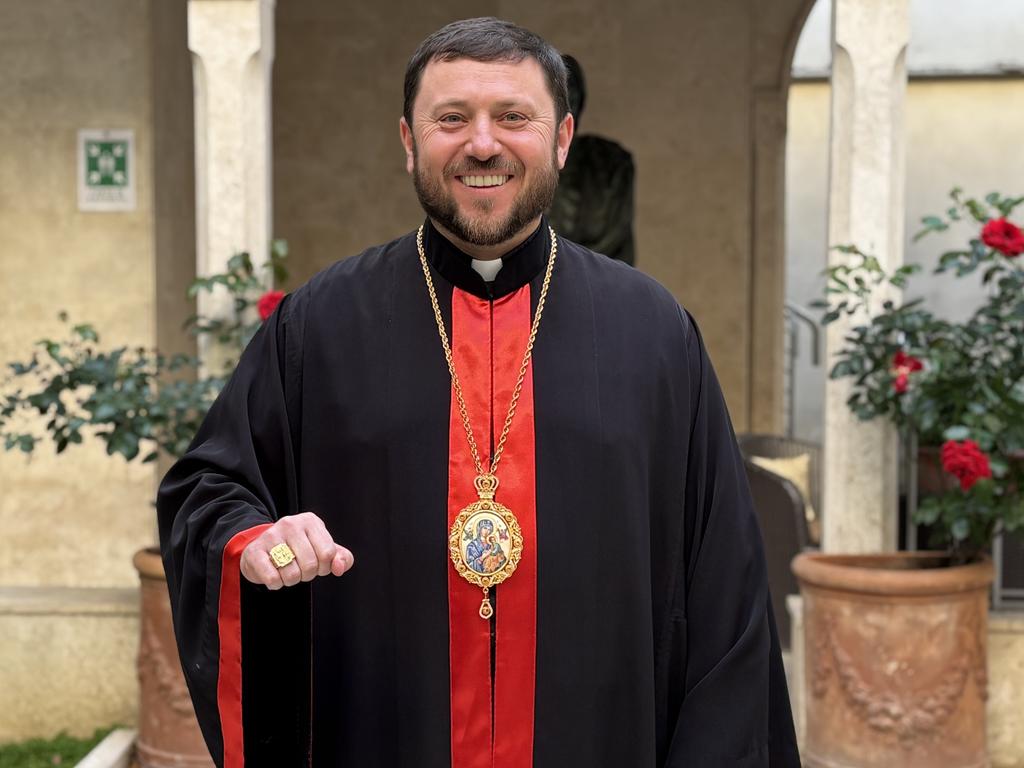


To join the conversation, please log in. Don't have an account? Register
Join the conversation, you are commenting as Logout